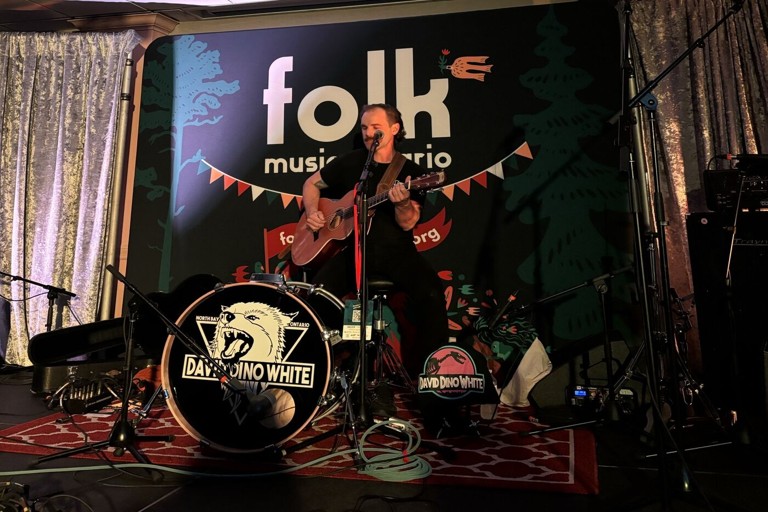Arts & Culture
The Rise of Folk Music Collectives in Northern Ontario
Across Sudbury and North Bay, musicians are banding together to form folk collectives that host house concerts, open mics, and workshops — reviving community through the shared language of music.
By Rebecca Singh • 2025-10-12

In community halls and coffee shops across Northern Ontario, a quiet musical movement is taking root. Folk collectives — informal groups of songwriters, performers, and storytellers — are emerging as the heartbeat of small towns, bringing neighbors together through harmonies that blend tradition, storytelling, and the warmth of shared experience.
In Sudbury, one such group calls itself The Pine Circle. Every Thursday night, they gather in a converted warehouse lit by string lights and the soft hum of old amplifiers. “It started with five of us who just missed playing together,” says founding member and guitarist Jonah Reid. “Now, we’ve got fifty regulars and a waiting list.”
The collective’s mission is simple: create a space where anyone — amateur or professional — can perform, collaborate, and learn. “It’s not about fame,” says Reid. “It’s about connection. The kind you can’t get from a screen.” Members range from high school students to retirees, all united by a love of honest, acoustic music.
North Bay’s scene is growing too. The Shoreline Folk Union hosts monthly open-mic nights in libraries and church basements, featuring songs about local history, fishing tales, and northern winters. “It’s storytelling in melody form,” says singer-songwriter Annie Dupuis. “Every song carries a piece of this place — the wind, the lakes, the long drives.”
Many of these collectives were born out of the pandemic, when live shows disappeared and artists found themselves isolated. “We started meeting online just to keep each other sane,” Dupuis recalls. “Then, when restrictions lifted, it turned into something real — something tangible. It reminded us how much music belongs to community.”
Their gatherings are humble but full of life — mismatched chairs, pots of coffee, and the occasional fiddle tune that sparks spontaneous dancing. “You’ll see a miner’s son playing alongside a teacher and a nurse,” says Reid. “There’s no ego, no hierarchy — just music that means something.”
The movement has even inspired cross-town collaborations. Last month, Sudbury and North Bay musicians joined forces for the Northern Strings Festival, a grassroots weekend event held on the shore of Lake Nipissing. With local food, bonfires, and unplugged performances, it drew over 600 people — proof that small-scale culture can thrive without corporate backing.
Local businesses have begun to take notice, too. Breweries and cafes now host regular “folk nights,” offering performers small stipends or bar tabs in exchange for live sets. “It’s good for the soul and the local economy,” says café owner Michael O’Rourke. “People stay longer, talk more, spend a little extra — it’s human.”
For many artists, the collectives have rekindled their passion for songwriting. “There’s something about hearing your lyrics sung by a room full of friends,” says Dupuis. “It gives you courage to write again, even when life feels heavy. It’s healing, in the truest sense.”
As the northern nights grow colder, the music keeps flowing — banjos and guitars echoing through small-town streets. For these folk musicians, success isn’t measured in downloads or followers, but in the quiet joy of shared rhythm. Together, they’ve proven that even in the most remote corners, community can still find its voice.